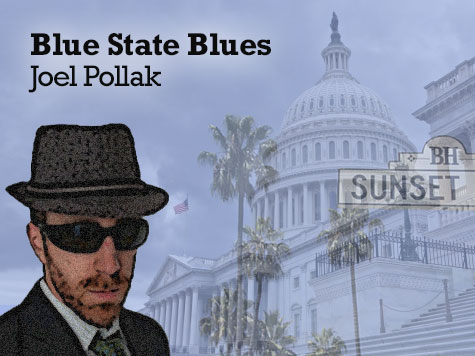It’s that time of year again: the Conservative Political Action Conference, or CPAC. Every year there are squabbles over who is invited and who is not, which politicians are cheered and which are jeered, and which Republican presidential prospect will finish second in the straw poll to a member of the Paul family.
This year, thankfully, we have been spared the usual drama about whether the gays would be here, partly because the atheists seized that particular spotlight.
Yet another reason the gay issue has not come up at CPAC this year is because the national debate has shifted in a fundamental way. The argument is no longer just whether gay marriages should be legal, but whether the state should be able to compel an individual to participate.
That latter step has united conservatives – libertarians and social conservative, for and against gay marriage – on the same side of the issue. In that way, activist judges have done CPAC a favor.
It is also true that CPAC has become more tolerant than it once was. That reflects the increasing tolerance of American culture generally, but it also reflects the legacy of Andrew Breitbart, who did more than any other individual to bring gays and other “non-traditional” conservatives into the fold. He did it by speaking up to defend gay conservatives against open bigotry – and also by criticizing gay conservative leaders when they used aggressive tactics or divisive language.
For Andrew, tolerance was a two-way street. And in his own irreplaceable way, he reconciled the various CPAC factions.
In 2011, for example, Andrew and GOProud threw an after-hours bash at the 18th Street Lounge, headlined by rocker Sophie B. Hawkins. Something remarkable took place that night. Nobody came out of the closet, but everybody there came out of their shells, sharing aspects of themselves that did not quite fit the buttoned-down conservative stereotype.
If it was all right for gays and lesbians to be who they were, and yet preserve their political convictions, then maybe it was possible for the rest of us, too.
And in addition to enjoying the music and the beer and the lights, we all seemed to enjoy a sense of relief.
I think that gay culture, at its rainbow best, fosters that atmosphere of tolerance. And conservatism, at least in its American form, protects the idiosyncratic individual against conformity and identity politics.
“The truth is that it is liberals in America who are bent on dividing people, on forcing people into ideological boxes based merely on their race, religion, sex or sexual orientation,” Andrew had said in promoting the party.
And he made it his personal mission to prove that conservatism was the antidote, by celebrating black conservatives, Jewish conservatives, Hispanic conservatives, gay conservatives, apostates and punks who dared challenge their assigned political roles.
This year, for the second time, Breitbart News has hosted “The Uninvited,” a gathering that provides a platform at CPAC for those voices, themes and ideas not included in – or excluded from – the main conference.
I have no doubt that Andrew would have enjoyed it. He loved challenging the establishment – even, and sometimes especially, the conservative one. He believed that in the end, conservatism was robust enough to endure debate, and grow from it.
Yet in his final address to CPAC, just weeks before his death in 2012, Andrew stressed unity. He did so because he believed that what conservatives shared was more important than what divided us, and too fragile to risk.
And people listened. It is worth noting that the moderate, “establishment,” socially conservative Mitt Romney earned more of the libertarian vote than any prior GOP nominee.
Today, despite the rancor of CPAC, Andrew’s message endures.

COMMENTS
Please let us know if you're having issues with commenting.